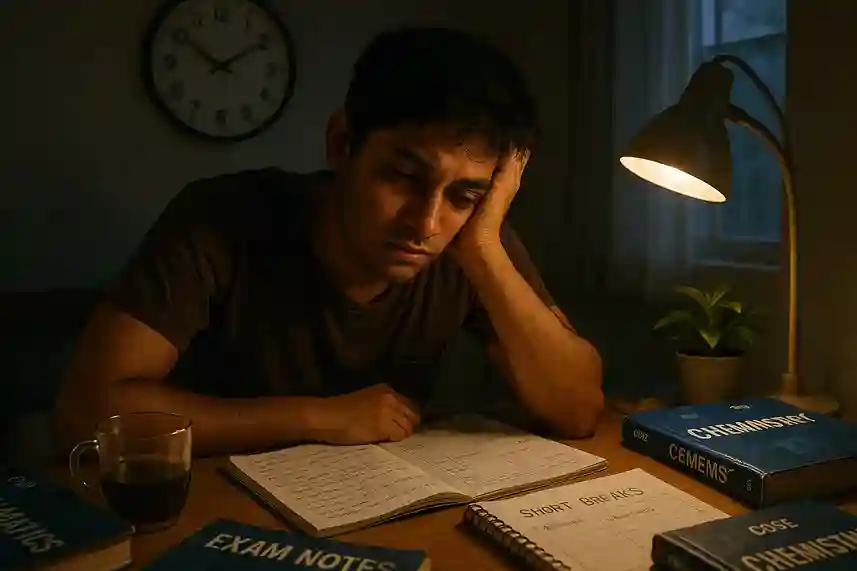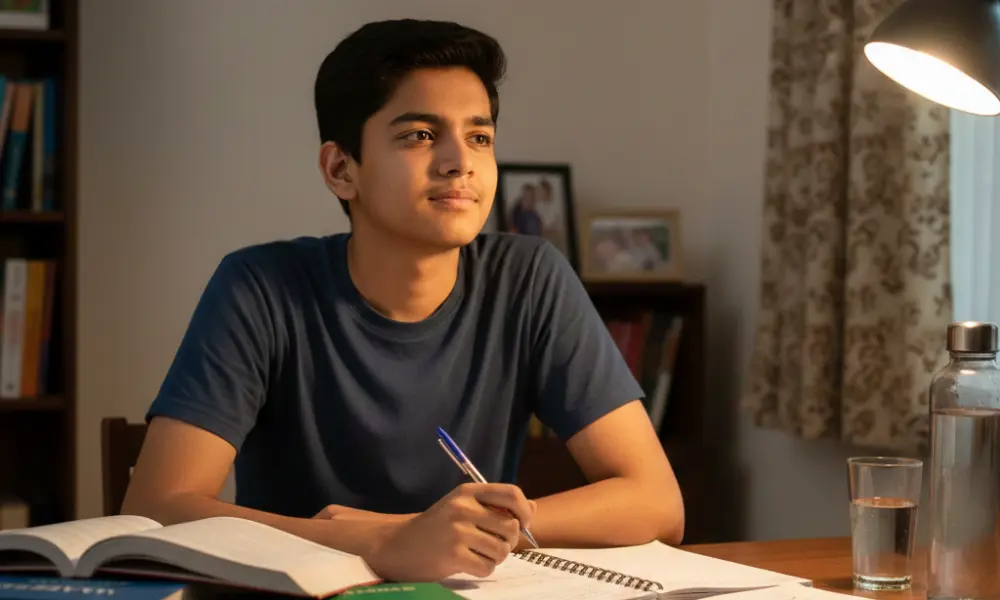Study Burnout: What It Is and How CBSE Students Can Beat It
Understand study burnout in CBSE students and learn practical strategies to prevent and recover
Study burnout is becoming increasingly common among CBSE students facing long study hours and exam pressure. This detailed guide explains what burnout is, its causes and symptoms, and provides proven strategies for prevention, recovery, and long-term wellness. It also highlights how parents and teachers can support students effectively.

What is study burnout?
Study burnout is a state of physical, emotional, and mental exhaustion caused by prolonged academic stress. Unlike ordinary tiredness, burnout is more severe and persistent. Students often describe feeling drained, unmotivated, and unable to concentrate despite long hours of study. For CBSE students managing multiple subjects, board exam preparation, and extracurricular commitments, burnout can become a real obstacle to success.
The World Health Organization defines burnout as a condition linked to chronic stress. In the school context, it manifests when constant effort and pressure are not balanced with adequate rest, relaxation, and healthy coping mechanisms.
Signs and symptoms in students
Constant fatigue even after rest
Lack of motivation to study despite upcoming exams
Difficulty concentrating or remembering content
Increased irritability, frustration, or mood swings
Decline in academic performance
Headaches, sleep problems, or frequent illnesses due to stress
Parents may notice their child spending hours at the desk but not being productive. Students themselves may feel guilty for not meeting study goals, further intensifying the cycle of stress.
Causes workload expectations pressure
CBSE students face unique challenges that make them prone to burnout. The Class 10 and Class 12 board exams are high stakes and often seen as career defining. This creates pressure from multiple sources.
Heavy workload: Balancing multiple subjects, assignments, and coaching classes leaves little time for rest.
High expectations: Parents, peers, and even self imposed goals can push students beyond healthy limits.
Performance pressure: Fear of failure, comparison with others, and competition for top ranks add mental stress.
Lack of balance: When students sacrifice sleep, hobbies, and social interactions, mental energy gets depleted quickly.
How burnout affects exam performance
Burnout directly impacts academic outcomes. Exhausted students often experience slower retention of concepts and reduced problem solving abilities. Instead of productive revision, they spend hours staring at books without progress. Anxiety levels rise, and confidence drops before exams. Research shows that chronic burnout can impair memory, concentration, and creativity—all skills needed for CBSE exams.
Burnout does not mean students are weak; it is a sign that they have been strong for too long without adequate recovery.
Strategies to prevent burnout
Follow a balanced study plan: Allocate time realistically across subjects and include short breaks.
Set achievable goals: Break large chapters into smaller daily tasks to reduce overwhelm.
Prioritize rest: A consistent sleep routine improves focus and prevents exhaustion.
Stay active: Light exercise, yoga, or even a walk boosts energy levels.
Engage in hobbies: Creative outlets like music, art, or sports provide mental refreshment.
Recovery techniques and lifestyle changes
For students already experiencing burnout, recovery is possible with intentional lifestyle changes. Start with small adjustments rather than drastic shifts. Limit continuous study sessions and practice techniques like deep breathing to reduce stress. Ensure proper nutrition and hydration since the brain requires energy to function effectively.
Students should also be kind to themselves. Accepting that productivity can fluctuate reduces guilt and allows for a healthier comeback. Building routines with adequate downtime helps reset mental health.
Role of parents and teachers in support
Parents and teachers play a crucial role in preventing and addressing study burnout. Supportive communication is key. Instead of only emphasizing marks, focus on effort and improvement. Parents should create a balanced home environment where relaxation is valued as much as hard work. Teachers can help by providing feedback without judgment and by encouraging students to take short breaks during preparation.
When students feel understood and supported, their resilience improves. Even small gestures like appreciating progress or giving time off after exams can make a big difference.
Long term wellness strategies
Mindfulness and meditation: Regular practice helps students manage anxiety and increase concentration.
Consistent routines: Following a fixed timetable for study, meals, and sleep builds stability.
Healthy peer groups: Positive peer support reduces the competitive pressure that often causes stress.
Growth mindset: Encouraging students to see challenges as opportunities for learning reduces fear of failure.
Periodic breaks from academics: Short holidays or leisure days recharge energy and prevent long term fatigue.
Study burnout is not the end of the road. With the right balance of work, rest, and support, CBSE students can recover their energy and perform with confidence.
Suggested blogs

How CBSE Class 10 Students Can Manage Stress as Board Exams Approach
Effective strategies for managing exam stress in CBSE Class 10 students.

Managing Peer Pressure in School – A Student’s Survival Guide
Strategies for students to navigate peer pressure with confidence.

How Music Affects Study Focus – Science-Backed Insights for Students
Discover how music can enhance your study sessions and improve focus.

How Journaling Can Improve Academic Performance and Mental Clarity
Unlocking the power of journaling for better learning and mental health.
